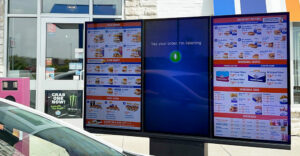
Consumer satisfaction with wireless phone service providers has slipped significantly over the last year, according to an annual study released by J.D. Power and Associates yesterday.
Overall, satisfaction fell 10 percent compared to 2004. That’s the largest year-over-year change in satisfaction since the survey’s inception in 1995, the company said in a statement.
Kirk Parsons, Power’s senior director of wireless services, attributed much of the growing dissatisfaction to increased merger and acquisition activity in the wireless industry, such as Cingular combining with AT&T Wireless and Sprint with Nextel.
“The major difference between what we’ve experienced in ’05 versus previous years is the fact that there’ve been unprecedented changes, the biggest being the two largest mergers ever to happen in the wireless industry,” he told CRM Buyer. “You’re talking about impacting 90 million customers over a 13- or 14-month period.”
Fear of Unknown
Parsons explained that mergers can create customer dissatisfaction by their announcement alone. When people hear of a merger, they surmise they’re going to have problems, he observed, so some of their dissatisfaction is based on perceived rather than real problems.
“We’re finding that through both of these major mergers, it’s the fear of the unknown that’s creating dissatisfaction,” he said.
That’s not to say those fears are totally unfounded.
“I’ve seen some specific instances with Cingular customers being upset post merger,” Ken Hyers, a senior analyst for ABI Research in Oyster Bay, N.Y. told CRM Buyer.
Service Going Downhill
“This is something that typically happens, unfortunately,” he said. “It’s to be expected whenever there’s a major wireless merger that customers are going to be negatively impacted from the standpoint of things like billing and customer service.”
He noted that Verizon, which tied for highest customer satisfaction in four of the six regions polled by Power, experienced similar pains during its acquisition phase. “Their customer service just went into the toilet,” he said. “It was very bad.”
What typically happens when you combine two companies, he explained, is that you have duplication of billing systems and customer care in addition to a jungle of cellular plans under which people have signed up. “Some operators may find themselves having to manage 50 different plans,” he said.
Sprint Tumbles
One of the hardest hit carriers in the Power study was Sprint/Nextel, which experienced the largest year-to-year decline in customer satisfaction of any provider in the survey. Its satisfaction performance rating decreased more than 10 percent, Parsons noted.
Sprint Communications Manager Mark Elliott told CRM Buyer that the carrier is always working to improve the customer’s experience at every touch point in the system. As evidence of customer satisfaction with the provider, he cited its industry-leading ranking in dollars spent per customer for wireless services.
He said that the average monthly amount spent by a Nextel customer was US$68 and by the average Sprint customer, $62.
“What that tells us is that our customers are finding our services beneficial, useful and valuable,” he maintained. “Where they spend their dollars is the ultimate measure of satisfaction.”
T-Mobile Shines
A clear winner in customer satisfaction in the Power study was T-Mobile, which tied for the highest satisfaction ranking in four regions and won the ranking outright in two others.
“Our customer service reps and our retail service reps deserve the lion’s share of the credit, because if it weren’t for their efforts, we wouldn’t be recognized by our customers,” T-Mobile spokesperson Peter Dobrow told CRM Buyer.
“Customer service has become T-Mobile’s hallmark,” he observed. “Cingular has the largest network. Verizon has the can-you-hear-me-now guy. And T-Mobile has customer service.”
Better Luck Next Year
With the major merger deals out of the way, customer satisfaction may improve when the Power survey is conducted next year, Parsons predicted.
“Looking at past data and previous mergers, typically you do find an increase in customer satisfaction,” he said. “That’s because what’s happened is we’re seeing artificial results for satisfaction based on an event, as opposed to real life experiences due to normal operations.”
“Based on past experiences, it should go up,” he added. “How much? I don’t know.”





















































